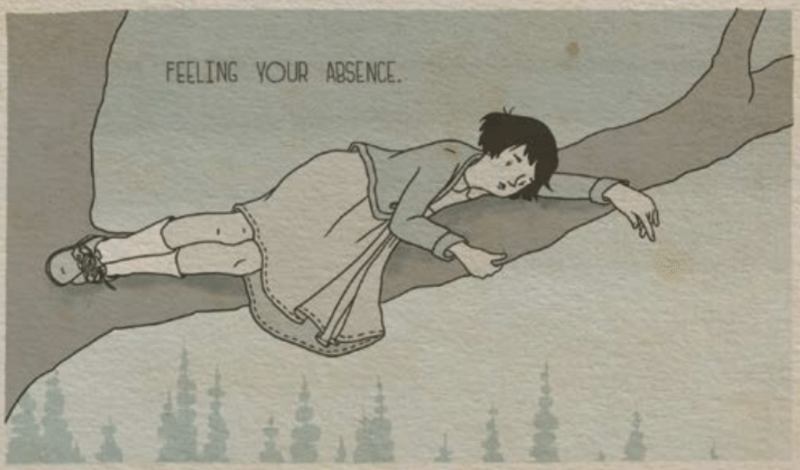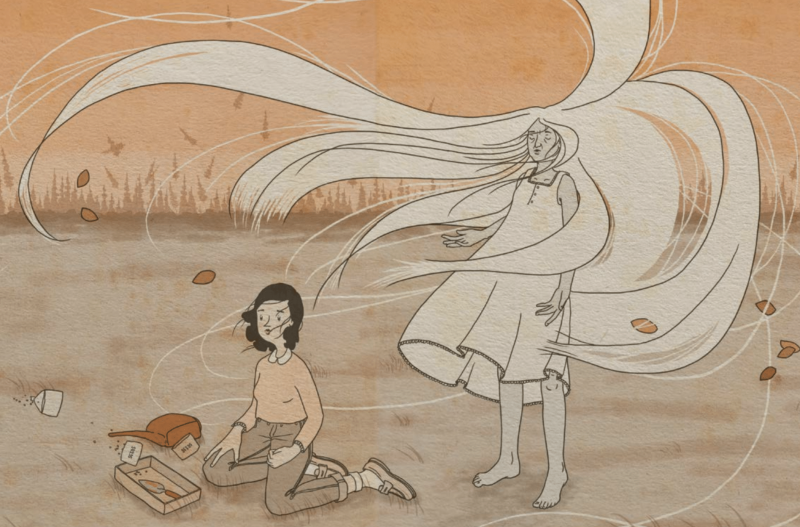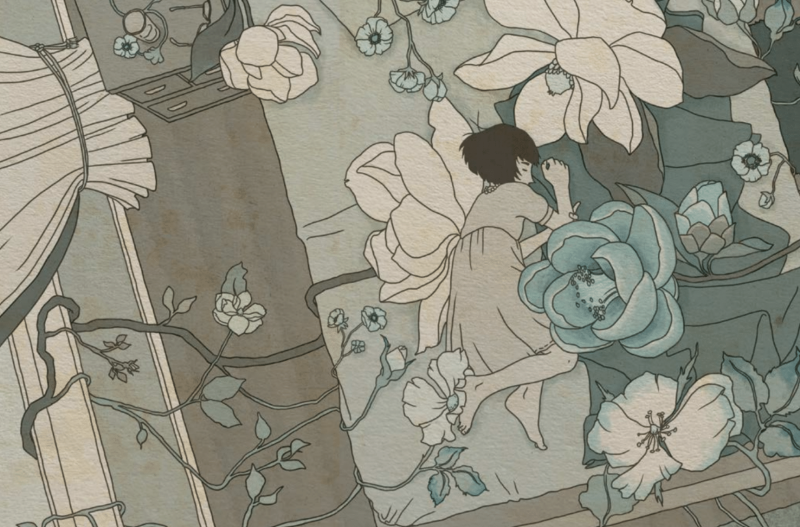There is a profound yearning in Briana Loewinsohn’s new graphic novel Ephemera that diligently creeps throughout, like so many vines in search of daylight. It’s a yearning that’s unspoken, lurking in empty corners and open fields. It’s present in small, desperate acts and silent scenes of isolation. That yearning provides a depth to the Oakland artist’s debut memoir that takes surface beauty and transforms it into something devastating.
Ephemera (Fantagraphics; $24.99) is the story of Loewinsohn’s childhood, of growing up with a mentally ill, neglectful mother who would disappear for extended periods, leaving Loewinsohn and her brother unattended. The author turned to nature for comfort, embracing tree branches, grass blades and potted plants when there was nothing to hold onto at home.

Told from the perspective of the adult Loewinsohn as she returns to her childhood home in Berkeley to tend to the gardens there, the story distinguishes between the artist’s past and present using subdued but distinct color palettes. Her past is brought to life in blues and grays, emphasizing the coldness of the family home and the haze inherent to memories. Her present is tinged with reds, oranges and browns, like a new dawn, albeit one still contained in half-light.




